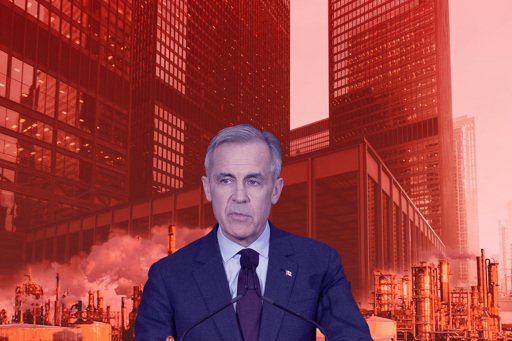In this 2021 book Value(s): Building A Better World For All, Carney tried to persuade us to believe in the free market—not just its merits, but its capacity to self-regulate, to be persuaded to do the right thing, to adopt “enlightened values,” to develop a kinder and gentler capitalism to meet a brutal moment.
This is the same Carney who played a key role in bailing out Canada’s banks during the global financial crisis.
The move ushered in more than a decade of cheap money, which in turn helped fuel a long-term, record-setting growth in the wealth gap while giving rise to financial bubbles and dodgy investments, driving up household debt, and exacerbating the housing crisis.
The asset-management firm Carney chaired, Brookfield, is another clear example of the fundamental inconsistency in believing the free market—perhaps led by the gentlest of hands by the state—is the way forward on climate.
The firm is a dirty-energy behemoth, investing billions in fossil fuels.
It has “one of the biggest portfolios of dirty energy in the world,” says climate finance activist Jason Mogus, who worked with the Sunrise Project. “And they continue to expand it.”



A key problem humanity seems to have, which is exploited by politicians everywhere, is the affinity for black and white thinking.
Capitalism and even neoliberalism are not necessarily categorically terrible. Unregulated versions of these certainly are terrible and unsustainable. And some versions and implementations of ideologies or frameworks are net worse than others.
Absolute austerity, unregulated neoliberalism, unregulated capitalism, unopposed communism, etc, are all terrible, damaging and unsustainable. Unfortunately finding sustainable solutions is difficult and requires thought, time and dedication. And it requires vision and unifying leadership to sell it to the people.
What kind of system did we have in Canada before the shift towards neoliberal capitalism?